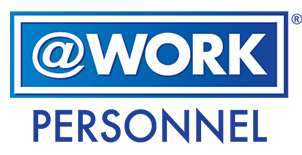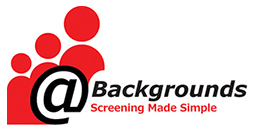Whether your organization is large or small, read the tips below to determine what ACA mandates may apply to your staffing model in 2016 and what you can do to ensure compliance (and sleep a little easier at night).
1. Know whether you qualify as a large or small employer. The Internal Revenue Service's (IRS) definition of "small employer" will change in 2016. Currently, a small employer is defined as an organization employing between 1 and 50 full-time, or FTE, employees. For plan years beginning on or after January 1, 2016, however, that definition will expand to include businesses with between 1 and 100 FTEs.
If your organization currently employs between 50 and 100 FTEs, you will need to begin complying with ACA regulations applicable to small employers in 2016, such as providing coverage for essential health benefits and meeting rating requirements. Also for employers of this size in 2016, though you will be considered a small employer for insuring purposes, you will be considered a large employer for purposes of compliance with the Employer Mandate.
As a reminder, in 2016 the Employer Mandate will require applicable large employers to offer minimum essential health coverage that meets affordability and minimum value requirements to at least 95 percent of full-time employees and their dependent children up to age 26. This means that, starting in 2016, if you are a non-grandfathered employer with between 50 and 99 FTEs, you will be subject to the Employer Mandate's associated financial penalties for non-compliance. If at least one full-time employee obtains subsidized health coverage through the Health Insurance Exchange Marketplace, you will be subject to a financial penalty.
While the expanded definition of a small employer will subject many to the ACA's financially burdensome Employer Mandate, it will also expand access to affordable small group health coverage for many of the same employers. The Small Business Health Options Program's (SHOP) online marketplace will expand its availability in 2016 to employers with 51 to 100 FTEs. Effective November 15, 2015, such employers may utilize the SHOP to obtain affordable small group health coverage for their employees.
2. Prepare for the IRS's Applicable Large Employer (ALE) Reporting Requirements. If you determine that your organization meets the definition of a large employer, you will need to prepare for the IRS' ALE reporting requirements. Beginning January 1, 2016, both fully insured and self-insured ALEs must report to the IRS information about the health coverage, or lack thereof, offered to full-time employees.
ALEs are required to file Form 1095-C, the Employer-Provided Heath Insurance Offer and Coverage form, and Form 1094-C, the Transmittal of Employer-Provided Health Insurance Offer and Coverage Information Returns. Both forms for the 2015 plan year must be filed no later than February 28, 2016 or March 31, 2016, if filing electronically, of the year immediately following the calendar year to which the return relates. ALEs that file 250 or more information returns during the calendar year must file electronically.
In addition to reporting to the IRS, employers must also provide a statement to employees that reflects the same information reported to the IRS by January 31 of the calendar year following the calendar year for which the information relates. An ALE that fails to comply with the information reporting requirements, or that fails to report timely, may be subject to a reporting penalty, so be sure to complete the necessary reporting requirements by the applicable deadline.
3. Partner with AtWork to ensure compliance and control overall healthcare plan and staffing costs. AtWork's experts can assist you in reviewing your full- and part-time employee strategy. They will also help you determine how to meet your staffing goals cost-effectively while minimizing your exposure to ACA penalties. In addition, AtWork will help you:
- Right-size your workforce with contingent staff to assist with your short-term projects or long-term goals.
- Optimize your staffing strategy to maintain your status as a small employer in 2016, if that's the best option for your business.
- Get flexible access to the people you need as your business grows or your staffing requirements change.
With a knowledgeable staffing partner, the ACA's latest round of employer requirements doesn't have to turn into a time-consuming, costly nightmare. A properly executed staffing strategy can help control insurance costs, ensure proper compliance with federal regulations, protect against penalty fees, provide flexible access to talent, and deliver the optimal staff to meet your business demands.

